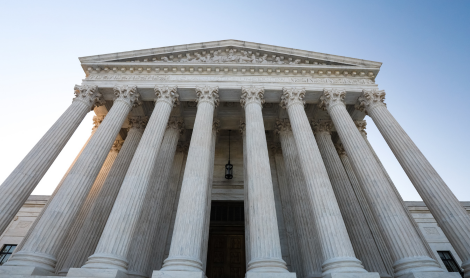This year, West Virginia, Iowa, Florida, and Wyoming have enacted legislation to expand authorizing pathways. Prior to these bills, three of the four states only allowed district authorizers. In the case of Florida, while non-district authorizers were allowed, they had very limited scope.
Interestingly, each of the four states has ushered in a different type of authorizer than the others. As we’ve noted in the past, less important than the type of authorizers in a state is the quality of authorizers. These four states are demonstrating that local context and needs are important to finding the right path to ensure quality options.
West Virginia: A New Statewide Chartering Board
Two years after enacting the state’s first charter school law which permitted only local school districts authorizers, West Virginia enacted further legislation establishing the West Virginia Professional Charter School Board (WVPCSB). The WVPCSB is a statewide independent chartering board. The five-member board is fully appointed by the Governor and is empowered to appoint an executive director and staff, subject to funding appropriations, to carry out the Board’s authorizing work. The legislation also establishes a limited appeals pathway through the State Board of Education.
Iowa: An Expanded Role for the State Board of Education
Under previous law, the State Board of Education had a limited role in charter school authorizing. Approval of district-authorized charter schools was required by the State Board, and they also provided a limited appeals pathway. Under enacted legislation, the State Board of Education may now directly authorize charter schools. The bill requires the State Board to adopt and abide by nationally recognized authorizing principles and standards, including developing and utilizing a performance framework in all charter contracts.
Florida: Further Empowering Higher Educational Institutions
After several years of similar bills falling short, Florida finally enacted legislation that expands authorizing powers for state universities and colleges (HEIs). Under previous law, HEIs were only permitted to authorize “lab schools” with specific missions and were limited to one school (excluding grandfathered schools). Under this law, HEIs in Florida would be able to authorizer charter schools more generally. Additionally, the law gives the Department of Education more authority to oversee charter school authorizers.
Wyoming: An Innovative Non-Educational Government Entity Approach
Lastly, Wyoming is taking a novel approach to expanding authorizing pathways. Recently enacted legislation will permit, beginning in 2022, the State Loan and Investment Board (SLIB), a board made up of the state’s five highest ranking elected officials, to directly authorize charter schools. If fully implemented, Wyoming would become the only state with a state-level non-education-specific entity (e.g. not the state board of education, state university system, or state chartering board) as an authorizer.
While neither signing nor vetoing the bill, permitting it to still be enacted, Governor Mark Gordon indicated that he is supportive of the efforts to expand charter schools but had concerns over the bill’s specifics, particularly whether SLIB was the appropriate avenue for an alternative pathway. Gordon intends to work with the legislature to strengthen the law before it goes into effect in 2022.
Different Ways to Ensure Multiple Pathways
As we’ve written elsewhere, experience shows that the presence of multiple high-quality authorizers can strengthen a state’s charter school sector. A diversity of authorizers can promote professional practices among authorizers and provide checks and balances in charter approval, oversight, and renewal decisions. Various non-district authorizers each have their own pros and cons, which is why state context and needs are so important.
These four states have followed their own paths to adopting NACSA’s policy recommendation for providing multiple authorizing pathways: identifying an institution that can be trusted to embrace the role of authorizing. But the work should not and cannot stop there. Policymakers must ensure that these entities, and all authorizers, have the resources and autonomy necessary to build capacity as high-quality authorizers and are held to high standards.
Jason Zwara analyzes and develops charter authorizing policies as part of NACSA’s policy team. He is responsible for tracking state and federal charter school legislation and developing policy resources for members and advocacy partners. Have policy questions? Please reach out! Jason can be reached at [email protected]


